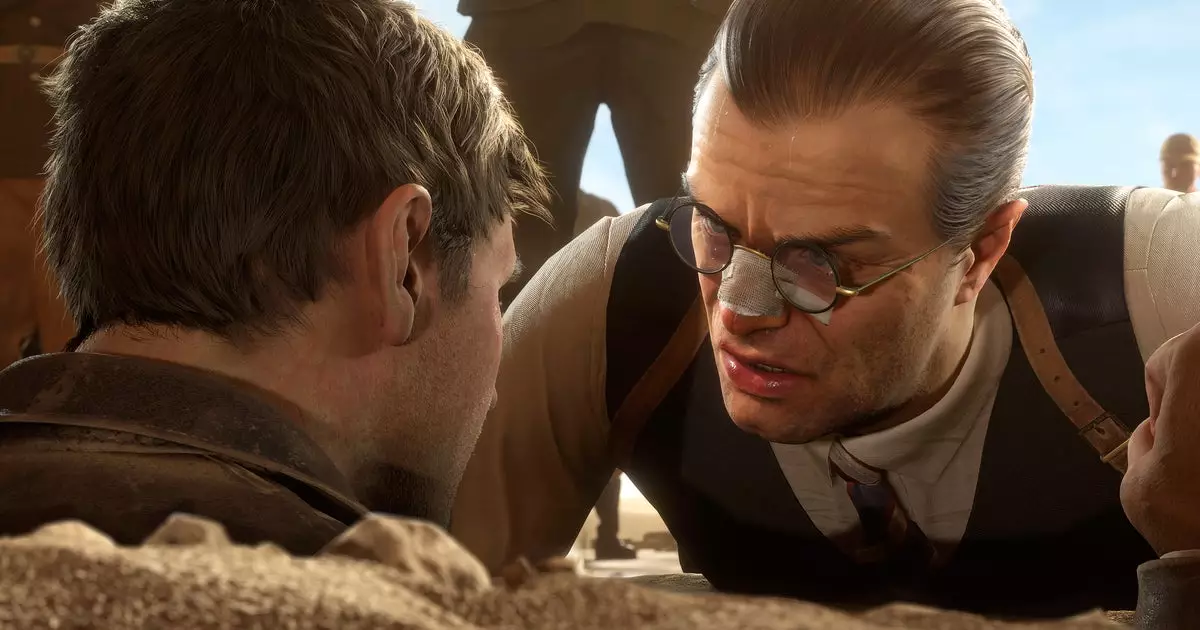The world of video games often straddles a fine line between entertainment and moral dilemmas, especially when historical events are interwoven with fantastical narratives. The Indiana Jones franchise serves as an intriguing case study in this regard, particularly with the forthcoming game, *Indiana Jones and the Great Circle*. This iteration promises to thrust players into a whirlwind of action against the German National Socialist Party—a subject that invites both excitement and critical examination.
Within the realm of mainstream entertainment, the depiction of Nazis often oscillates between caricatured villains and serious political commentary. George Lucas and Steven Spielberg, through the character of Indiana Jones, have firmly positioned anti-Nazi sentiment at the core of their narratives. The memorable line, “Nazis? I hate these guys!” from *Raiders of the Lost Ark*, encapsulates the franchise’s overt stance against such ideologies. However, the portrayal of such historically significant antagonists raises pertinent questions regarding portrayal versus glorification.
Indiana Jones is a character steeped in moral ambiguity; much like the plot itself, he sometimes acts in ways that can feel contradictory. He crosses paths with a Nazi spy in romantic scenarios, highlighting how the lines blur between enemy and ally, which can be interpreted as both relatable humanity and significant risk in today’s socio-political landscape.
The developers of *Indiana Jones and the Great Circle* are keenly aware of the sensitivities surrounding representations of Nazis, which has led them to incorporate a specific disclaimer: a stipulation meant to clarify their intentions. This disclaimer proclaims the fictional nature of the game and distances itself from endorsing any oppressive ideologies. As it reads, their portrayals should neither glorify nor trivialize the grave crimes of history.
Yet, this attempt at caution may come off as somewhat hollow. Many might see it as a mere legal safeguard instead of a heartfelt message against intolerance. The contradiction becomes apparent when one considers the potential for misuse by those who might manipulate the game’s imagery for personal gain—possible issues exacerbated in an age of social media where screenshots can be misconstrued or misrepresented.
While the disclaimer attempts to distance the game’s narrative from real-world ideologies, the very act of engaging players in violence against historical figures can create an inherent paradox. Although players may relish the opportunity to fight against Nazis, they are also navigating a landscape fraught with ethical considerations. In gaming, particularly with a character as iconic as Indiana Jones, developers walk a delicate tightrope balancing entertainment with the historical implications of their narratives.
Actively engaging with historical villains can inadvertently lead to misinterpretations. It raises the question: how do creators ensure their artistic liberties do not morph into forms of glorification? Given the resurgence of far-right sentiments in various parts of the world, this question remains exceedingly relevant. Game developers might find themselves in a precarious position where their art could be co-opted by ideologies they vehemently oppose.
As the gaming community grows, so too does its potential influence. Developers must approach historical topics with a multifaceted understanding, striving to foster environments where players can critically engage with themes rather than passively consume them. The portrayal of oppressive regimes should serve more than just a narrative device; they can also be an opportunity for teachable moments, promoting a deeper understanding of history’s repercussions.
*Indiana Jones and the Great Circle* aims to thrill players with action while positioned within a morally intricate framework. As players prepare to engage in this escapist journey, it is crucial to consider the broader implications of the narratives they inhabit, reminding us that the lines between fun and moral responsibility are often thin yet vital to navigate. As escapism continues to intertwine with real-world matters, the hope remains that both creators and consumers can engage thoughtfully and critically in the journeys crafted before them.


Leave a Reply